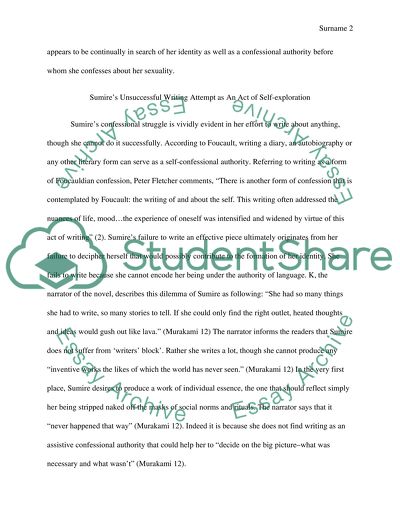Cite this document
(“Critical Analysis of Sumire as a Foucauldian Confessional Modern Essay”, n.d.)
Critical Analysis of Sumire as a Foucauldian Confessional Modern Essay. Retrieved from https://studentshare.org/literature/1445610-single-character-analysis
Critical Analysis of Sumire as a Foucauldian Confessional Modern Essay. Retrieved from https://studentshare.org/literature/1445610-single-character-analysis
(Critical Analysis of Sumire As a Foucauldian Confessional Modern Essay)
Critical Analysis of Sumire As a Foucauldian Confessional Modern Essay. https://studentshare.org/literature/1445610-single-character-analysis.
Critical Analysis of Sumire As a Foucauldian Confessional Modern Essay. https://studentshare.org/literature/1445610-single-character-analysis.
“Critical Analysis of Sumire As a Foucauldian Confessional Modern Essay”, n.d. https://studentshare.org/literature/1445610-single-character-analysis.


